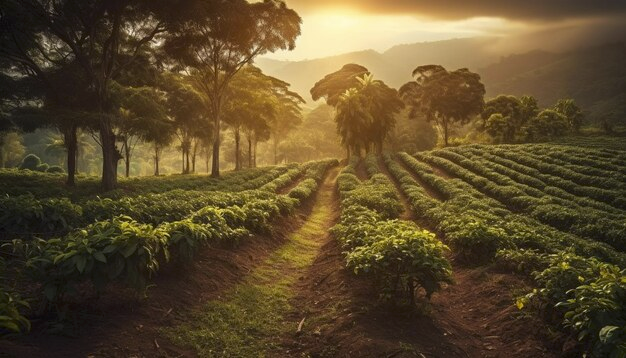
Pollinator populations are crucial for the stability of global food systems, with over 75% of the world's food crops being dependent on these insects. However, global food production is increasingly threatened by declining pollinator populations, with 28-61% of crop systems worldwide experiencing yield limitations due to insufficient pollinator visitation. This study provides a comprehensive assessment of pollinator limitations across diverse crop systems, highlighting the urgent need for targeted pollinator management to sustain and improve agricultural productivity.
Researchers analyzed 198,360 plant-pollinator interactions and 2,083 yield measurements across 32 crop species in 120 study systems, revealing that 28-61% of these systems are pollinator-limited. Lead author Katherine J. Turo from Rutgers University highlighted that a significant portion of global agriculture is currently suffering from pollinator shortages, which directly impacts crop yields.
The study identified that pollinator limitation affects blueberry, coffee, and apple crops most frequently. Interestingly, the probability of pollinator limitation decreases with greater forest land cover surrounding a crop field at a 1 km radius, though the average effect sizes are small. Ainhoa Magrach, an Ikerbasque researcher at BC3 and study co-author, explains, "Forested areas seem to provide essential habitats for pollinators, reducing the likelihood of yield limitations in adjacent crop fields."
Despite the concerning findings, the study offers a hopeful perspective. It suggests that realistic increases in pollinator visitation could mitigate crop yield shortfalls. The researchers estimated that increasing pollinator visitation to levels observed in the 90th percentile of each study system could close 63% of the yield gaps between high- and low-yielding fields. Dr Magrach emphasized, "This suggests that with realistic increases in pollinator populations, we could significantly boost crop yields, ensuring better food security and economic stability for farmers."
The study concludes that pollinator reliance is a current limiting factor in global agriculture, not just a future concern. It underscores that consistent, high pollinator densities could substantially reduce yield gaps, particularly in high-value and nutrient-dense crops. Despite challenges in identifying universal drivers of pollinator limitation, the research highlights the critical role of surrounding forest habitats in mitigating this issue.
The results provide robust evidence that targeted pollinator management could enhance crop yields worldwide, involving both the conservation of wild pollinators and the improvement of managed bee populations. The study's novel statistical approach offers a valuable tool for future research and policy-making, aiming to sustain agricultural productivity in the face of declining pollinator populations.
According to researchers, by increasing pollinator densities through ecological intensification and habitat conservation, significant improvements in global crop yields can be achieved, supporting both economic and food security goals. The findings emphasize the need for continued investment in pollinator research and conservation strategies to address this pressing agricultural challenge.
See the full study at https://www.nature.com/articles/s41559-024-02460-2
.png)
